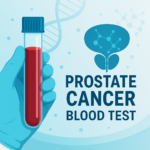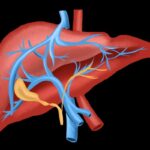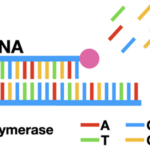Unraveling the Threads of Fate: How the Klotho Gene Links PTSD, Aging, and Mental Health
Methylation, a chemical process involving the addition of methyl groups to particular DNA segments, serves as a key mechanism in regulating gene activity within cells. As individuals age, specific gene regions tend to accumulate an excess of methyl groups. This phenomenon underlies the concept of epigenetic age, which can be calculated based on the distribution of methyl tags across genes.
Epigenetic age may not always align with an individual’s actual biological age. A variety of factors, including chronic illnesses, environmental shifts, cancer development, and dietary choices, can influence epigenetic age. Research conducted by scientists at Boston University School of Medicine has further revealed that mental illnesses can impact epigenetic age as well.
These alterations are linked to a gene named Klotho, after the Greek goddess of fate. In Greek mythology, Klotho and her two sisters governed the life span of every human, with Klotho in charge of spinning the thread of life. This gene is associated with the aging process, evidenced by studies showing that mice with a mutation in the Klotho gene age much faster than their normal counterparts. Consequently, the Klotho gene is regarded as an inhibitor of aging.
Klotho is also crucial for brain function. Mice lacking a functional Klotho gene exhibit deficits in performing specific cognitive tasks, indicating the gene’s importance in cognitive processes. Additionally, research on brain development in rats has demonstrated that Klotho protein levels vary across different stages of growth, suggesting its involvement in the developmental process. Further experiments on rodents have revealed that Klotho protein plays a protective role against brain inflammation. Collectively, these findings underscore the critical role of the Klotho gene in maintaining normal brain functionality.
PTSD, characterized by significant alterations in Klotho protein levels, is prevalent among survivors of violent encounters and war veterans. This mental health condition, post-traumatic stress disorder (PTSD), manifests through intense anxiety and fear triggered by specific stimuli. In its most severe form, individuals with PTSD may find themselves unable to manage daily tasks effectively, overwhelmed by the powerful negative emotions and fear induced by the disorder.
Current theories suggest that PTSD arises from a lack of inhibition in the amygdala, a brain region integral to memory and the fight-or-flight response. The development of PTSD involves several anterior brain areas, including the ventromedial and dorsolateral prefrontal cortex, crucial for fear regulation and suppression. Dysfunctions in these areas are commonly linked with PTSD.
Recent findings have shown that veterans experiencing PTSD symptoms exhibit accelerated epigenetic aging compared to those without the disorder. This discovery spurred research into the relationship between epigenetic aging and PTSD. One notable finding is that individuals with severe PTSD frequently possess a specific variant of the Klotho gene, rs9315202. The presence of this gene variant, combined with PTSD, correlates with other aging signs, such as rapid epigenetic aging in patient cells.
The subsequent phase of research focused on examining brain changes due to mental illness and their potential association with Klotho gene variants. This investigation involved studying brains donated posthumously by individuals with various mental disorders, including PTSD, depression, and alcohol-related disorders. The study specifically analyzed the dorsolateral and prefrontal cortex, regions often impacted by PTSD, and the motor cortex, responsible for movement control.
Researchers discovered that the rs92315202 variant of the Klotho gene, when coupled with a PTSD diagnosis, is linked to increased epigenetic aging in the motor cortex. This acceleration of aging in the brain region responsible for movement was observed only in one other condition: chronic alcohol use. Additionally, when the rs92315202 variant of the Klotho gene was introduced into a cell line derived from human kidneys, the protein it produced behaved differently from the standard version of the protein and influenced the activity of other genes.
Understanding the impact of specific gene variants is crucial for the future of personalized medicine. Knowledge of a gene variant that could significantly increase the risk of pathological changes and accelerate aging under conditions of severe stress or mental illnesses like PTSD allows for the possibility of preventing the worst outcomes through tailored therapy. This underscores the importance of such research in the effective treatment of individuals with severe mental illnesses, particularly those suffering from PTSD.
Literature.
- Clinton, S. M. et al. [August 2013] Expression of klotho mRNA and protein in rat brain parenchyma from early postnatal development into adulthood. Brain. Res., V. 1527,pp. 1-14.
- Zhu, L. et al. [November 27, 2018]. Klotho controls the brain–immune system interface in the choroid plexus. PNAS, V. 115, №48.
- Prather, A. A. et al.[June, 2015]. Longevity factor klotho and chronic psychological stress. Transl. Psychiatry., V.5, № 6, p. e585. Retrieved December 1, 2020 from: https://www.ncbi.nlm.nih.gov/pmc/articles/PMC4490291/
- Wimalawansa, S. J. [2014]. Mechanisms of developing post-traumatic stress disorder: new targets for drug development and other potential interventions. CNS Neurol. Disord.Drug Targets, V. 13, №5, pp. 807-16
- Lobo, I. et al. [2011]. The neurobiology of posttraumatic stress disorder: dysfunction in the prefrontal-amygdala circuit? Psychol. Neurosci., V. 4, № 2. Retrieved December 1, 2020 from: https://www.scielo.br/scielo.php?script=sci_arttext&pid=S1983-32882011000200004
- Pennington, Z. T., A. S. Anderson, M. S. Fanselow [2017]. The ventromedial prefrontal cortex in a model of traumatic stress: fear inhibition or contextual processing? Learn Mem., V. 24, pp. 400-406
- Wolf E. J., et al. [June 13, 2018] Posttraumatic psychopathology and the pace of the epigenetic clock: a longitudinal investigation. Psychological medicine, V. 49, Issue 5, pp. 791-800
- Wolf, E. J. et al. [August, 2019]. The Goddess Who Spins the Thread of Life: Klotho, Psychiatric Stress, and Accelerated Aging. Brain. Behav. Immun., V. 80, pp. 193-203
Recent Blog Posts
-
 13 Jun 2025MTL Epitherapeutics and RI-MUHC Develop Early Prostate Cancer Blood Test
13 Jun 2025MTL Epitherapeutics and RI-MUHC Develop Early Prostate Cancer Blood Test -
 11 Jan 2025EpiAge Research Publication Signals a New Era in Understanding Biological Aging
11 Jan 2025EpiAge Research Publication Signals a New Era in Understanding Biological Aging -
 18 Nov 2024EpiMedtech Global Announces FDA Registration of EPIAGE, the First Epigenetic Age Test Registered by the FDA
18 Nov 2024EpiMedtech Global Announces FDA Registration of EPIAGE, the First Epigenetic Age Test Registered by the FDA -
 18 Nov 2024EpiMedTech Global Validates Unique epiCervix HPV Combo Test for Cervical Cancer Detection
18 Nov 2024EpiMedTech Global Validates Unique epiCervix HPV Combo Test for Cervical Cancer Detection -
 31 Oct 2024HKG epiTherapeutics’ MetaGen Genetic Risk Assessment Test Receives FDA Registration, Now Available in the U.S.
31 Oct 2024HKG epiTherapeutics’ MetaGen Genetic Risk Assessment Test Receives FDA Registration, Now Available in the U.S. -
 31 Oct 2024EpiMedTech Global Launches epiGeneComplete: A Breakthrough Genetic and Epigenetic Test for Comprehensive Health Diagnostics
31 Oct 2024EpiMedTech Global Launches epiGeneComplete: A Breakthrough Genetic and Epigenetic Test for Comprehensive Health Diagnostics -
 30 Oct 2024Enhanced Early Detection of Liver Cancer
30 Oct 2024Enhanced Early Detection of Liver Cancer -
 08 Oct 2024Are Microarrays Still Reliable? How Next-Generation Sequencing Outperforms Traditional Methods
08 Oct 2024Are Microarrays Still Reliable? How Next-Generation Sequencing Outperforms Traditional Methods



